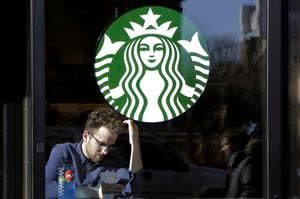NLRB accuses Starbucks of illegally closing 23 stores

The National Labor Relations Board (NLRB) is accusing Starbucks of illegally closing nearly two dozen stores to discourage union organizing.
A regional office at the National Labor Relations Board said that Starbucks closed 23 locations because employees were engaging in union activities. Of those stores, eight are in Western Washington.
NLRB regulators also want them to reopen the stores, as well as ask a judge to rule in favor of compensating the former employees for their loss of income. This complaint from regulators will likely come up when a labor case comes up in front of an administrative judge in Summer 2024.
The NLRB previously said that the company violated federal labor law by telling workers they couldn’t testify when subpoenaed unless they were able to get their shift covered. They also ruled that the company illegally told workers they could not perform union-related activities while on break.
Union employees have previously come forward, saying that the company actively suppressed organizing, and they fear retaliation.
One Starbucks employee who worked at the former Capitol Hill location at Denny Way and Broadway Avenue, Rachel Ybarra, was told that they would be disciplined if they did not show up to their scheduled shift despite being subpoenaed by the NLRB.
“The board has found imposing potentially burdensome conditions on an employee as a prerequisite for attending a hearing pursuant to an NLRB subpoena constitutes a violation of [the National Labor Relations Act],” the ruling said.
Another employee, Joel Synder, also subpoenaed by the NLRB, was told by Roddy Clifton, Vice President of Human Resources at Starbucks, that if he missed work to testify, his absence would be grounds for a write-up. The report said that these instances did not show a neutral application of the policies of Starbucks, and while it did “not necessarily intend to discourage him from participating,” the company should have allowed the employees to testify without preconditions.
Ybarra was also told that they could not distribute union pins to customers or employees who asked for them, even during mandatory paid break time protected under the law. The manager later allowed them to distribute pins outside the store on their off time.
A Starbucks spokesperson tells the New York Times that the company sometimes closes stores “as a standard course of business” after looking at their numbers.
Employees are not the only ones asking for Starbucks to respect workers’ rights; 52% of Starbucks shareholders voted in March for the coffee chain to assess whether Starbucks was adhering to its own human rights standards.
An independent report found that Starbucks did not have good training or guidance in place for management on how to engage with the union. The report did find no evidence that Starbucks trained managers to violate labor laws, but did say that the company should increase training for managers so they are acting in line with U.S. labor laws.
The NLRB has filed at least 130 unfair labor practice charges against Starbucks, a majority of which involve managers making illegal threats or promises to interfere with union activity.
Starbucks has been at the bargaining table with the union representing employees, Workers United, since May, with no sight of a union contract in sight. Starbucks Chief Partner Officer Sara Kelly sent a letter to Workers United president Lynne Fox, saying that the current bargaining impasse between the two sides “should not be acceptable to either of us.”
“We will set as an ambition and hopeful goal the completion of bargaining and the ratification of contracts in 2024,” Kelly wrote in the letter.
Union contract talks are set to restart in January.
Contributing: Sam Campbell, Associated Press
This story was originally posted by MyNorthwest.